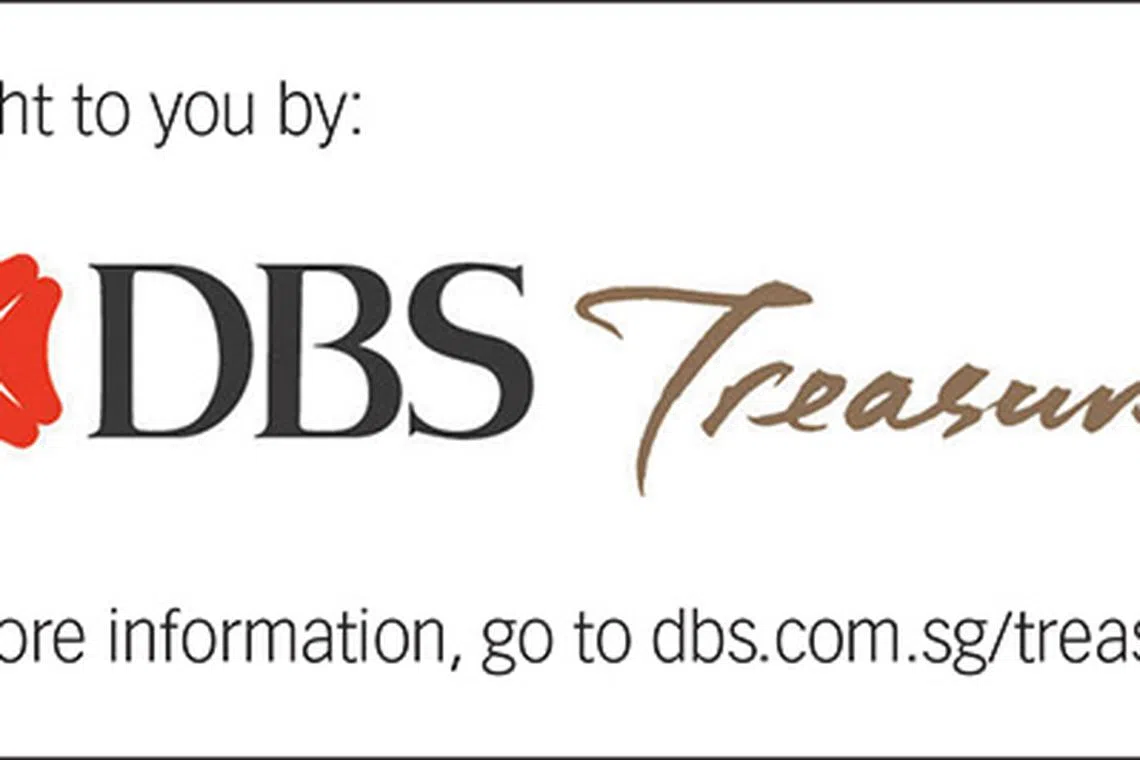Smart money on the go
Being able to quickly and easily make and modify investment decisions means clients are becoming more proactive in wealth management.

WELL before the Covid-19 outbreak, many financial institutions had already been increasing their focus on developing digital capabilities, especially in response to a rise in the population of young, tech-savvy high-net-worth (HNW) clients.
The move towards digitalisation has picked up pace amid the pandemic and now extends beyond clients who are digital natives.
In 2020, DBS Treasures, which serves accredited investors with investible assets of S$350,000 and above, saw a more than threefold jump in both the number and value of equity transactions made digitally. Growth has continued into 2021 and is "on pace" to exceed 2020 figures, says the head of DBS Treasures Singapore Steven Ong.
DBS Treasures saw its volume of forex transactions, which includes remittances made by clients, grow 1.5 times year on year in 2020.
As for unit trusts, transactions through digital channels were growing at close to 2.5 times year on year prior to the Covid-19 outbreak, and this rate of growth held steady last year. In the first 10 months of 2021, though, the total value of unit trust transactions has exceeded that of the year-ago period.
Having the ability to make and modify investment decisions at their fingertips also means clients are becoming more proactive and taking a more self-directed approach toward wealth management.
Navigate Asia in
a new global order
Get the insights delivered to your inbox.
"All segments of our client base are getting more familiar and more receptive towards using digital channels for making investment or wealth management related decisions," Ong said.
"The digital shift for clients applies primarily to self-directed transactions such as purchasing equities, making forex transactions, and investing through ready-made portfolio offerings such as digiPortfolio (the bank's hybrid robo advisor) or our unit trust investments," he says.
Tools for the time-starved
Over the years, DBS has introduced several tools catering to clients' demands for "smart money on the go".
For one, the DBS digibank mobile app doles out investment prompts and includes features that monitor Treasures clients' stock holdings. Clients will be notified of 52-week highs and lows of stock prices and significant price movements, for instance.
Such notifications alert them to real-time market opportunities so they can time their investments more efficiently, Ong says.
Many of these tools are designed based on a "hyper-personalised" approach and cater to clients' unique current, future and latent needs.
For instance, Treasures clients can also receive suggestions of stocks they might be interested in, based on their browsing and transaction history within the app.
Upcoming new prompts include personalised alerts for customers when ex-dividend dates for stocks in their portfolio approaches, or when companies of interest are due to release their corporate earnings. These notifications not only serve as potential trading signals to busy customers, but also help provide automated portfolio monitoring, such as by reminding customers of an upcoming dividend payment.
Apart from investment prompts, DBS uses real-time data to deliver foreign exchange alerts. These alerts, which have been available for forex traders since September 2020 and will be rolled out for remittance users in November, notify clients within 1-2 minutes when a forex rate they might be interested in moves in their favour.
The tool uses a predictive model to help identify customers who are likely to find specific alerts relevant for them. This helps forex traders and remittance users take advantage of favourable rates.
In September this year, the bank also started a dedicated section on its app for initiatives focused on environmental, social and governance (ESG) areas, to encourage clients to consider investing into specific causes.
"Like the greater investment community, our clients are also placing a greater emphasis on investing along socially responsible lines," Ong says.
In September this year, the bank started curating personalised articles from its chief investment office based on clients' respective holdings and preferences under a "Curated for You" section in their mobile apps.
Technology complements relationship-led service
Many of these alerts are delivered automatically and refreshed according to market movements. The use of artificial intelligence (AI) and machine learning allows the bank to create relevant prompts unique to particular clients' interests.
In Ong's words: "This AI-powered personalisation helps them cut through the noise and improves our customers' experience, making it more time-saving and convenient."
That said, he maintains that wealth management remains primarily a relationship-led service, where clients and wealth advisors meet face to face on a regular basis to review and consider investment options.
Amid the pandemic, the medium of contact has now shifted to virtual meetings and tele-advisory services.
"While the ongoing Covid-19 outbreak has, indeed, put a dent on the regularity of having such meetings in person, the traditional advisory-led services are still a relevant and omnipresent feature of the wealth management experience," he says.
Relationship managers are still an important piece of the wealth conversation, especially for the growing group of "modern affluent" millennials who might be newer to such instruments.
According to a KPMG report published in March 2021, Asia-Pacific is home to some 15 million HNW individuals, and this is forecast to grow 39 per cent by 2024.

Decoding Asia newsletter: your guide to navigating Asia in a new global order. Sign up here to get Decoding Asia newsletter. Delivered to your inbox. Free.
Copyright SPH Media. All rights reserved.

